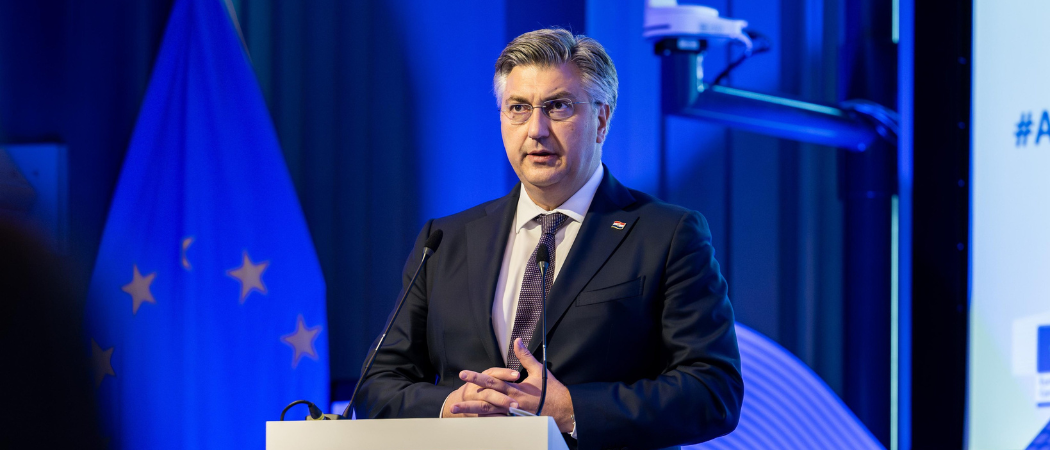Plenković signals support for high-level proposal to make research, innovation and education ‘a fifth freedom,’ in a speech to the EU annual budget conference

Andrej Plenković, prime minister of Croatia, speaking at the Annual EU Budget Conference 2024 held on April 29. Photo credits: European Commission / X
Andrej Plenković, prime minister of Croatia, is in favour of injecting more funding into research as part of a bigger overall EU budget.
“We need to increase investment in research, innovation and technology, as well as provide more incentives for cooperation of our research institutions, industries and businesses,” Plenković said in his keynote speech to this year’s annual EU budget conference.
As the EU starts drafting the next seven-year budget, running from 2028, Plenković said increasing economic uncertainty, competition and challenges to rules-based systems underline the need to protect the bloc’s competitiveness. To do so, it is important to strengthen the link between EU industrial policy and the EU budget post-2027.
The budget debate is set to intensify at the same time as the new European Commission is planning the 2028 – 2034 research programme, FP10.
With widespread economic uncertainty, governments are likely to be reluctant to put more money in the EU pot. Despite this, research and innovation proponents started to campaign for more funding last year, with MEPs Christian Ehler and Maria da Graça Carvalho floating the idea of a €200 billion research and innovation budget – twice as big as the current Horizon Europe.
But investment is not just about money. It needs effective policy to be spent wisely. One idea currently doing the rounds in Brussels is to create a parallel of the single market for science by making research, innovation and education a fifth EU freedom.
The idea isn’t exactly new. Former EU research commissioner Janez Potočnik made a similar plea in 2007. In 2000, the EU set out to create European Research Area (ERA), a single market for research and innovation.
This proposition was recently revived in a high-profile policy report by former Italian prime minister Enrico Letta, which will shape the future structuring of the EU’s single market.
Plenković is on board, telling the budget conference, “As I said in the last European Council, I cannot agree more with Enrico Letta’s proposal that the EU should develop further the idea of a fifth freedom for research, innovation and education. The moment is exactly right for that.”
In addition, Plenković singled out increased investment in competitiveness, to which research and innovation greatly contributes, as one of three guiding principles for the next EU budget, alongside enhancing EU’s global standing and ensuring social convergence.
“We should explore a possibility of having a more ambitious budget anchored in solidarity and flexibility. A budget that would ensure more strategic autonomy and sufficiency while keeping our openness towards the outside world,” said Plenković.
During subsequent discussions, panellists stressed the need to bring down barriers to getting innovation to the market and enabling companies to scale up.
“We have the innovation. We have the talent. What we need now is scalability,” said Wim Mijs, CEO of the European Banking Federation.
Cecilia Bonefeld-Dahl, director general of the industry association DIGITALEUROPE, said companies must feel comfortable in the EU market and be able to easily deal with the myriad of EU regulations. As it is, the policy landscape is becoming increasingly complex, with the current European Commission having put upwards of 60 digital files on the table. Bonefeld-Dahl believes the rules should be streamlined to ensure they don’t hinder innovation.





 A unique international forum for public research organisations and companies to connect their external engagement with strategic interests around their R&D system.
A unique international forum for public research organisations and companies to connect their external engagement with strategic interests around their R&D system.